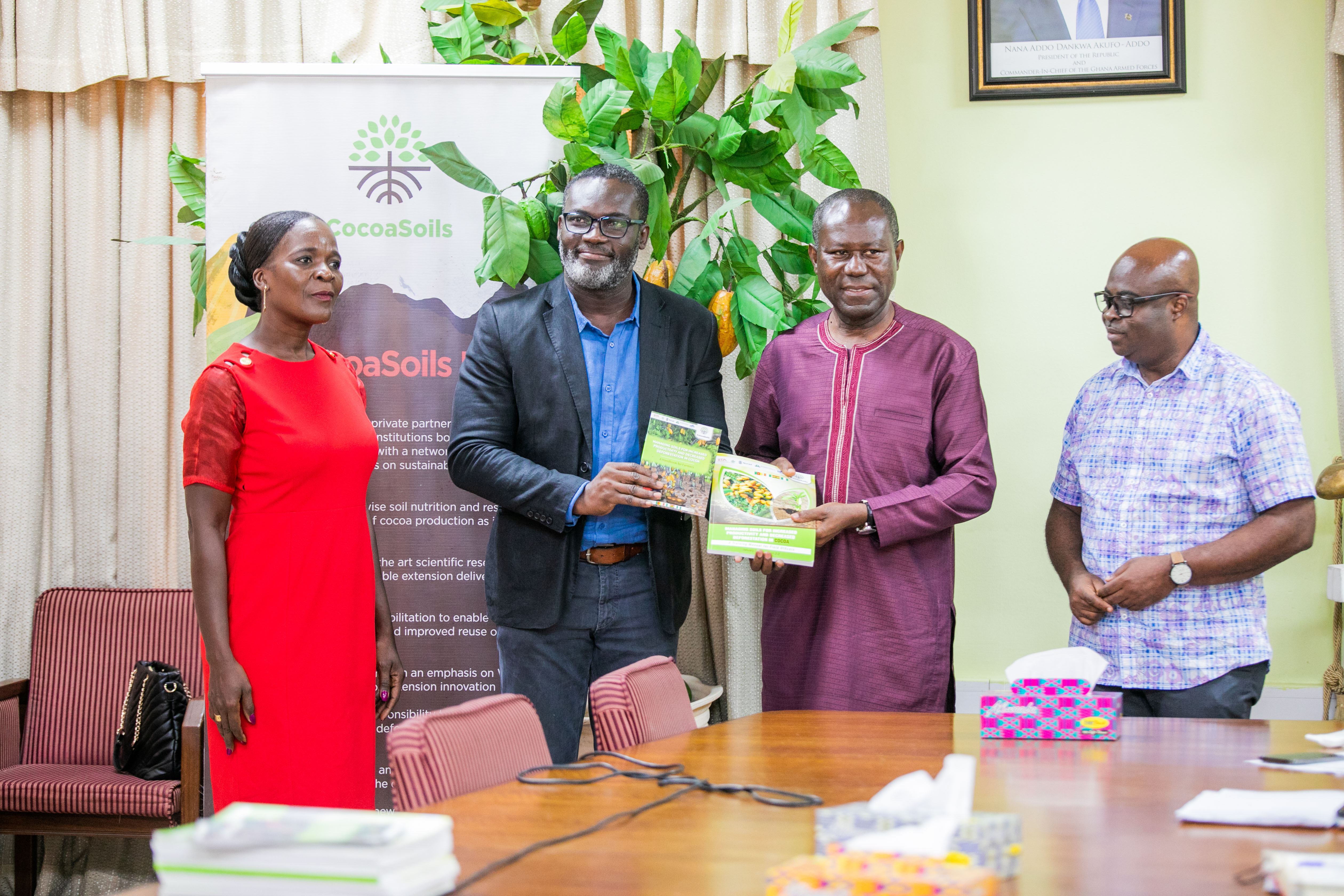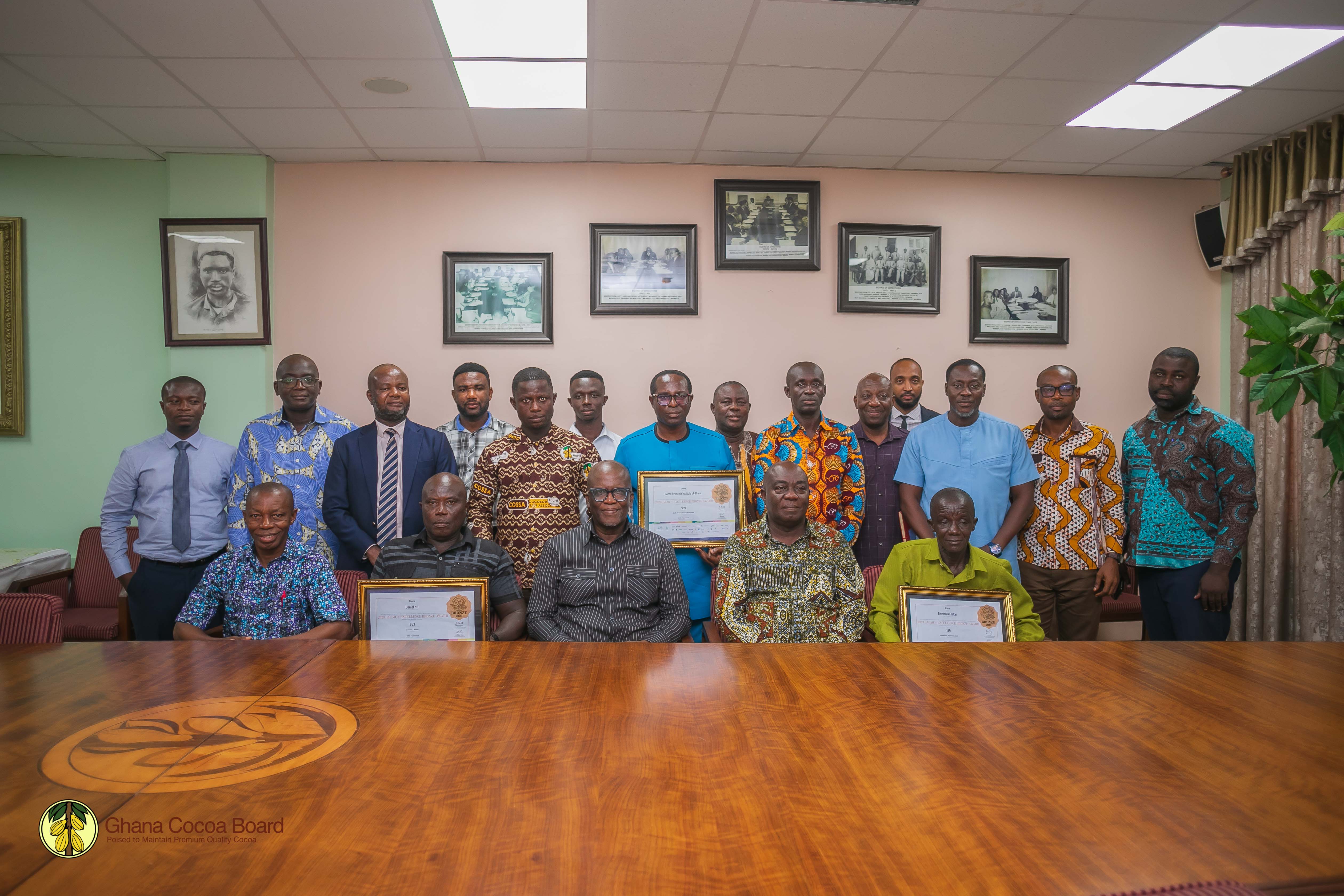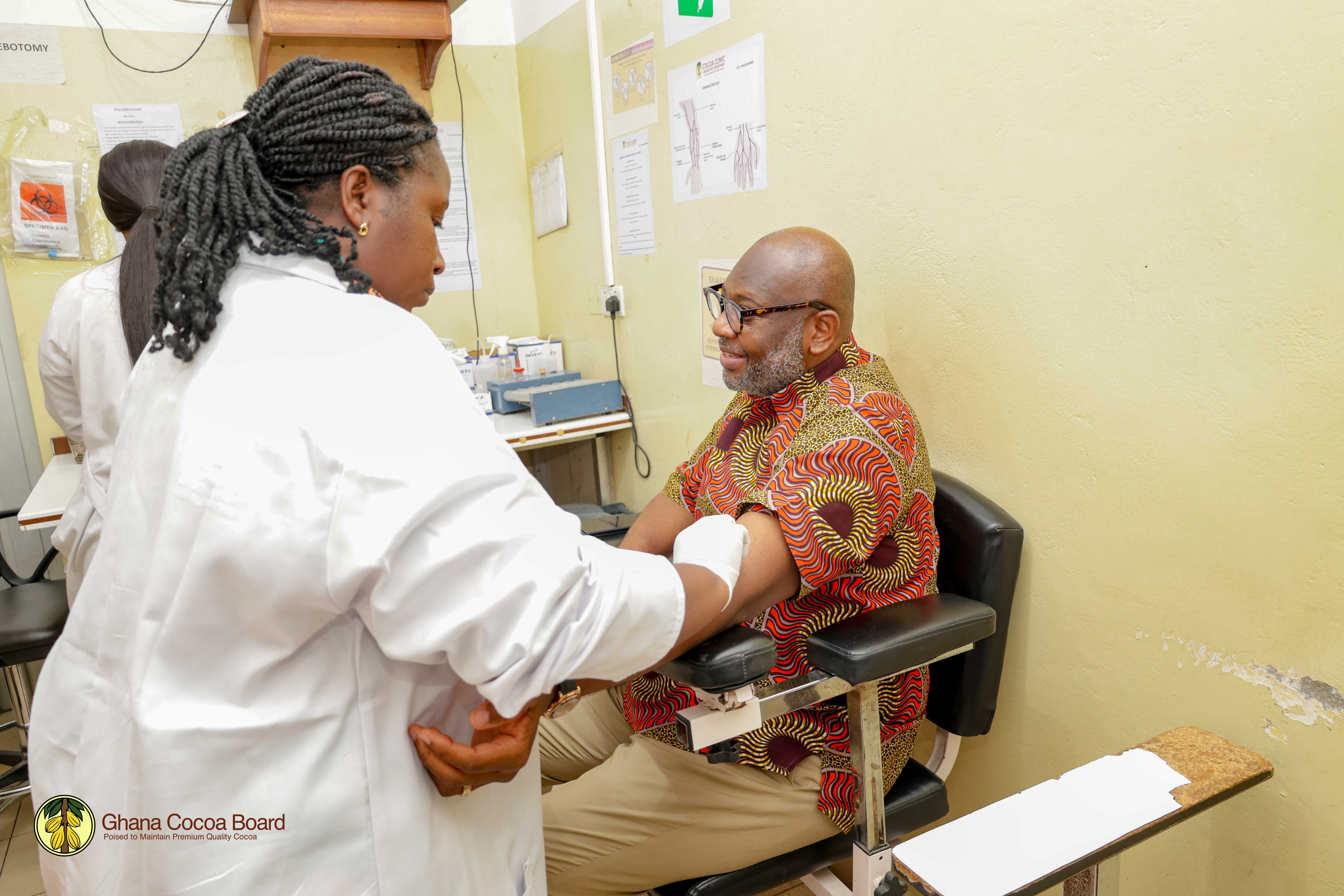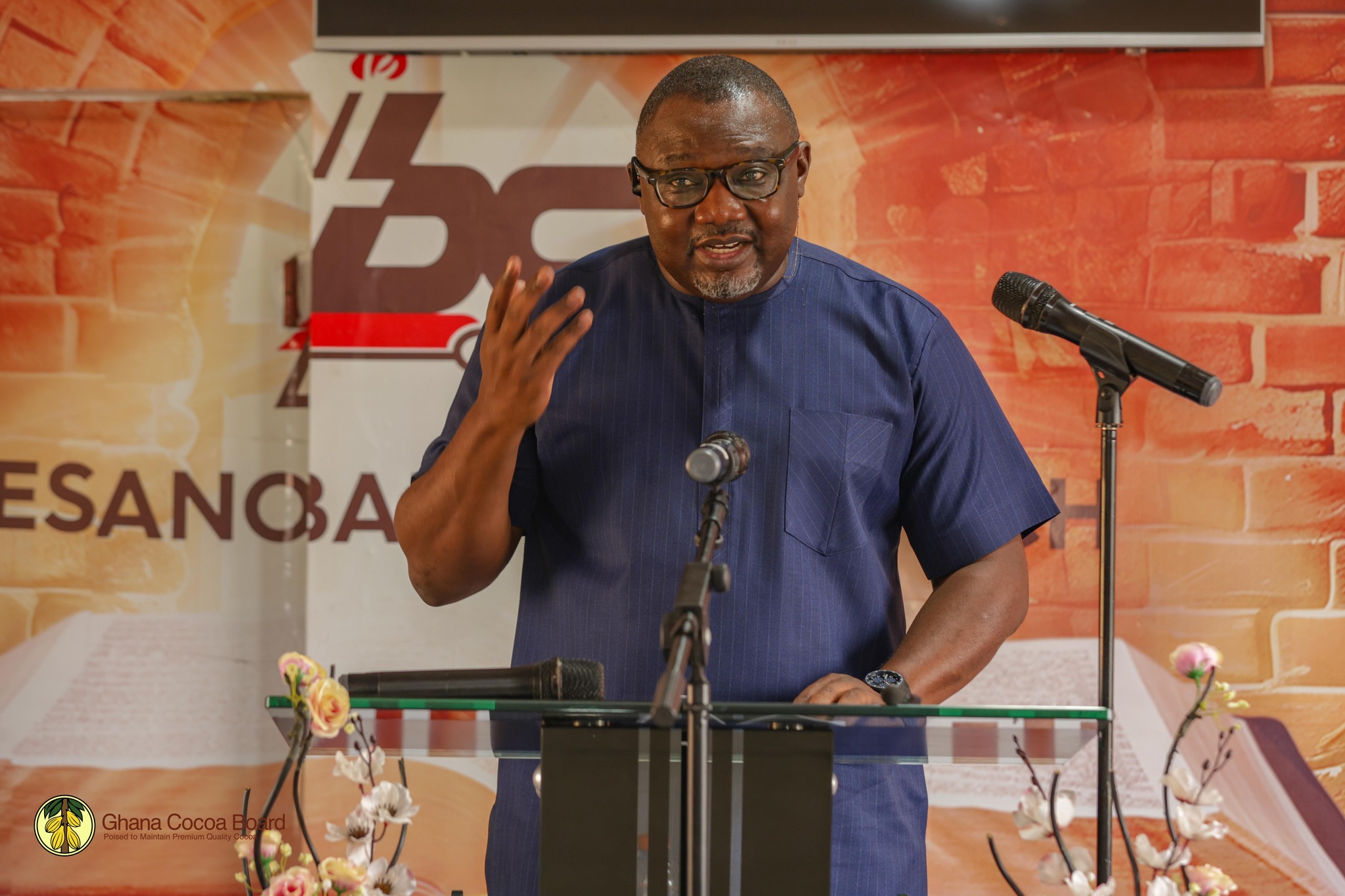COCOA SOIL MANUAL DEVELOPED TO IMPROVE COCOA FARMING

Date: 29th April 2022
Chief Executive of Ghana Cocoa Board, Hon Joseph Boahen Aidoo has hailed the Cocoa Soils Project for acknowledging and addressing key challenges relating to efficient use of farmlands within Ghana’s cocoa sector, as the Board continues to seek and adopt sustainable methods of cocoa farming.
He was speaking at a handing-over ceremony at the Cocoa House in Accra, where a Training Manual for Field Officers titled, ‘Managing Soils for Increased Productivity and Decreased Deforestation in Cocoa’ was officially presented by the Cocoa Soils Project team to Ghana Cocoa Board.
He expressed optimism that the manual will help address practices that reduce the nutritional value of farmlands.
Hon Boahen Aidoo recounted that a recent field visit to the Western North Cocoa Region revealed that trees cut down as part of the National Cocoa Farm Rehabilitation Programme have been cleared from farmlands and sold to traders as firewood.
“It is unfortunate that the trees cut during the farm rehabilitation exercise, which could have served as a reservoir of nutrition for replanted trees and food crops have been cleared by farmers out of ignorance. I am happy that the manual has captured practices to maintain and restore soil fertility, to help tackle such problems.”
Hon Boahen Aidoo emphasized that Ghana Cocoa Board is keen on harnessing soil nutrition to increase productivity on the same arable land, as part of efforts to stop the extension of farming into forest zones.
The Cocoa Soils Project Coordinator and Country Director of IITA, Dr Richard Asare disclosed that the manual is the first version of recommendations from ongoing Integrated Soil Fertility trials to enhance soil fertility and productivity in the country.
He expressed confidence that once validated and integrated into extension messages, the manual and its subsequent versions would help to deepen understanding of the cocoa tree’s nutritional requirements while addressing the problem of expansion of cocoa farmlands into forest zones.
“It is our belief that together, we can facilitate access to scientific knowledge to cocoa farmers and policymakers to help improve incomes and enhance sustainable cocoa production, and at the same time, mitigate cocoa driven deforestation risks in the country.”
The manual focuses on addressing issues under four key thematic areas, productivity, deforestation, environmental protection and health of cocoa producers.
Highlights include good agricultural practices to help farmers increase their productivity by at least 30%, Soil Fertility Management, and Integrated Management of Pests and Cocoa Diseases.
The manual and handbook were developed through collaborative work by scientists from Ghana, Cameroon, Cote D’Ivoire and Nigeria, through a consortium of public- private institutions, including the Cocoa Research Institute of Ghana and led by the International Institute of Tropical Agriculture, with funding support from the Norwegian government.
Other News / Articles you might be interested in.

COCOBOD HONOURS GHANAIAN COCOA FARMERS FOR EXCELLENCE AT INTERNATIONAL COCOA AWARDS
Management of Ghana Cocoa Board (COCOBOD) has honoured the winners of the 2023 International ...
Read More
DR. RANSFORD ABBEY LEADS BY EXAMPLE, UNDERTAKES ANNUAL MEDICAL EXAMINATION AT COCOA CLINIC
The Chief Executive of the Ghana Cocoa Board (COCOBOD), Dr. Ransford Abbey, has ...
Read More
COCOA MEDIA HUB LAUNCHED TO ENHANCE OPEN GOVERNANCE AND FARMER ENGAGEMENT
Ghana Cocoa Board, along with various stakeholders, has participated in the official launch ...
Read More